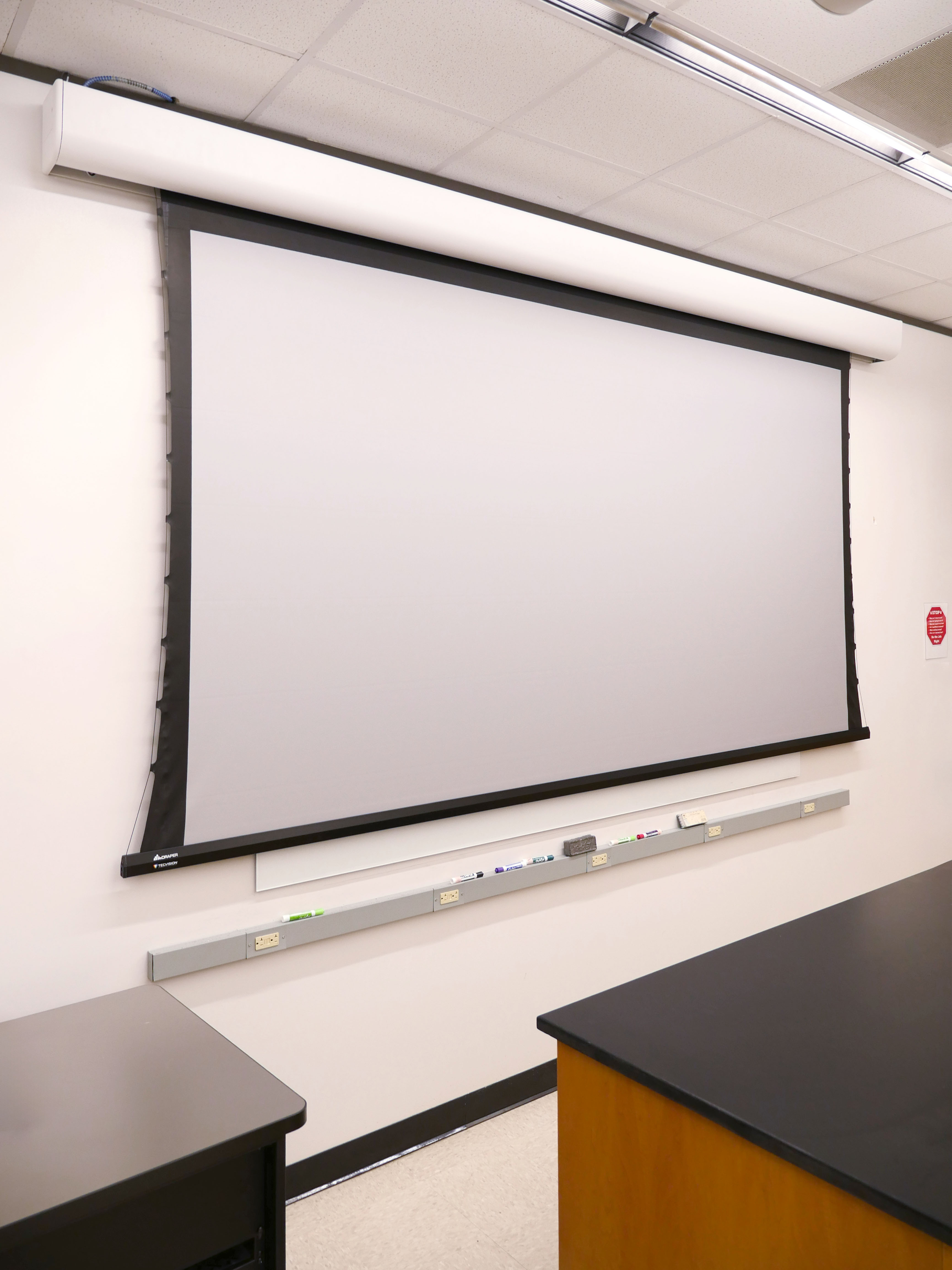
When Texas-based audiovisual company AVSANT was assessing needed classroom technology upgrades at the University of Houston-Clear Lake, one issue quickly became apparent: ambient light.
“Ambient projection is very important in classrooms. Especially if you have a biology class—specific pictures you want to show—that’s very important,” Yohannes Tesfaye, associate director of Academic Computing UH-Clear Lake said.
“This was a problem that instructors had mentioned—having to turn off the majority of the lights and not feeling like they’re being able to give that personable impression to the end users that are sitting in the room,” David Hoyle, vice president of Account Management for AVSANT said.
AVSANT and Draper recommended TecVision XH900X ALR, one of several ambient light rejection solutions the company offers. XH900X ALR is perfect for classrooms and other educational settings where off-axis viewing is important. Unlike many ALR surfaces, it achieves high contrast while still being able to support wide viewing angles.
Rejecting Ambient Light

“ALR is an amazing technology that’s come so far over the last few years and Draper has been a huge part of that in the industry as a whole,” Hoyle said. “By canceling out the lights overhead, it allows you to still have the same clear picture without having to spend an excessive amount of money on [the projector]—trying to go so bright that you get reflection back off of it and create hotspots.”
While ambient light was the main issue, it wasn’t the only one. As Tesfaye and the AVSANT team assessed various classrooms and spaces, an old problem you’ll often find in higher education facilities stood out: they hadn’t considered the importance of the projection screens.
“We noticed that they had some really old projector screens and different pieces,” Hoyle said. “A lot of times they’ll just replace the projector. When we really sat down with the executive team and the different IT teams, we said, ‘You’re not going to get what you’re expecting to get out of it unless we work with a screen manufacturer.’ And our recommendation was Draper.”
With 38 different classrooms plus other technology spaces serving different educational needs, the screen solution needed to be flexible. In some instances, the screen needed to be either suspended or ceiling mounted; in other areas it needed to be wall mounted. The solution: Acumen V surface-mounted screens from Draper. The Acumen screen housing can be mounted all three ways needed, and can also be fitted with any number of viewing surfaces.
“That really made a big difference,” Hoyle said. “When you walk into these 38 classrooms, every single one of them is exactly the same, even if the layout of the room is a little bit different. The technology inside of it, how it works, and how you visualize it is really powerful to the end user.”
“So far, we haven’t had any problems,” Tesfaye said. “That’s the important thing for us, because the reliability for class is very important. Of course, technology will break, but we’re trying to see how we can minimize that [with] product reliability and efficiency. So, so far it’s very efficient for our classes, so it’s very good.”







